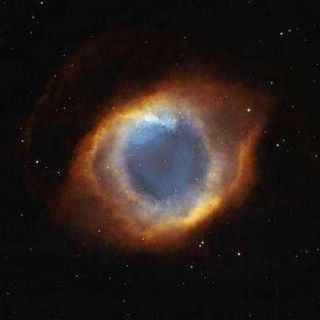Whitewashing Islamofascists - again and again
Leonard Pitts, like many of us in the civilized world was outraged by the Sudan teddy bear incident,Just to make sure I've got this straight: Their God is threatened by a teddy bear?However, Pitts does not see this as a problem related to Islam. As he says,
As in a plush, cuddly doll in the shape of a bear? As in the glass-eyed figure children sleep with for security? We're talking teddy bears as in teddy bears? A teddy bear has offended their God?
Lord, have mercy.
Throughout her ordeal, she has maintained that she respects Islam and has asked that people not think ill of the faith because of this. Which is exactly right. Islam is not the problem. Fundamentalism, however, is. And that, as we should know from our own experience, is a mindset that is not confined to one faith.Near the end of his piece however, Pitts says,
To the contrary, every faith has them, these rigid doctrinaires who would sacrifice their very humanity for the fool's gold of theological purity, these people so eager to live the literal law of their holy books that they miss the point of those holy books, shedding compassion, kindness and plain common sense along the way.
And then there is Darfur, the western region where four years of government-backed genocide has left an estimated 200,000 people dead. Some might say they are the lucky ones. Luckier than the man whose eyes were gouged out with a bayonet. Luckier than the people burned alive inside their huts. Luckier than the women raped so brutally they can no longer walk, so brutally that urine trickles constantly down their legs.And just who is committing those atrocities? Pitts wants us to believe that they are some generic fundamentalists, the kind that you can find in any religion. It must be sheer coincidence then, that the two examples of religion-inspired violence cited by Pitts are both Islamic. If there are members of other religions engaged in this same kind of barbarism (and all of the other religious hatred inspired violence being perpetrated by Islamofascists around the world), why didn't Pitts bring them to our attention?
Because there aren't any, of course. In the world of moral equivalence, Israelis booing their inept suicidal leadership, Christians who criticize Islamofascists, and Muslim terrorists are all labeled as "extremists". (Notice that it is the ADL that still labels Muslim terrorists as extremists. I will have more to say about that in a later post). How anyone in the West can still think that way is beyond me, but it must take a lot of mental gymnastics and refusal to face reality in order to do it.
Our second example whitewashing Islamofascists is from this piece of absurdity from the Detroit News. Here it is in its entirety.
When Imam Sayid Hassan al-Qazwini and other religious leaders met at the White House with Bill Clinton in 1999, something the president said encouraged Qazwini's conviction that Americans needed to know more about Islam.The problem with Qazwini is, and having never met the man personally I hate to say this, but he is a liar. I wrote about Qazwini in a previous post, again reprinted below in its entirety.
It was only when his daughter, Chelsea, took a class in world religions, Clinton said, that he understood how much Islam had in common with Christianity and Judaism.
"These words rang bells in my ears," Qazwini said, sitting in his office in the largest mosque in the country, the Islamic Center of America. "And I thought 'what could I do about educating a bigger number of people than I do just in the churches and the universities?' I thought: 'I need to write a book'."
Random House published "American Crescent" last month, and a group of interfaith leaders, including the Michigan Roundtable for Diversity & Inclusion, will meet at the mosque at 7 p.m. today to discuss it.
Qazwini cuts a prominent profile in Islam in the United States. He meets regularly with presidents and politicians, bishops and ministers of many Christian churches, rabbis and other religious leaders -- even the pope. Since Sept. 11, 2001, he has spoken more than 250 times at universities, churches and temples -- in part to explain that the terrorist attacks were affronts to the beliefs of Islam.
In "American Crescent" Qazwini uses the story of his life to explain why Islam is ultimately good for America -- and, to no small degree, why America is good for Islam. It is, as the publisher's note suggests, "At once a fascinating personal story and a heart-felt plea to integrate Islamic teachings into the tolerant traditions of America"
Leaders of other faiths call the book a bold strike against the extremists and an explanation of how Islam and American patriotism can walk hand-in-hand.
"He personally has experienced what extremists can do to people and what ideology can do to hurt people," said Rev. William Gepford, of the Littlefield Presbyterian Church in Dearborn. "My impression is that Imam Qazwini is very open about living in the United States and helping his congregation live in the United States as Muslims, accepting the rights of all."
Qazwini, the descendant of seven generations of prominent Muslim scholars, regularly tells his followers, "Remember, we are freer to practice our religion here than in most other countries in the world, including the countries we came from."
In his first moments in the United States, when an airline attendant treated him with kindness, Qazwini writes that he recalled the teaching of the Shi'a Muslim leader Imam Ali that "Your country does not belong to you more than any other country. The best country is the one that treats you well."
By and large, he believes he has been well-treated in the United States, and that Muslims are, too, despite almost daily negative publicity.
"The idea of the book was to make Islam available to the average American," Qazwini said. "I thought I would use my own story to engage the readers. If you write a dry text, an abstract text, you may not find enough people who are interested."
Qazwini takes some Muslims to task for their persecution of him and his family in Iraq and for some harshly enforced segregation of the genders. Like many religious leaders, he chides some of his followers for their secular approach, confusing culture with religion. He calls them "hummus Muslims."
"I think he got it about right," said Chuck Alawan, an American-born Muslim who is a long-time leader of the faith in Metro Detroit. "I think for someone who was not born in this country, he grasped the very essence of what it is to be an American."
I read Robert Sklar's editorial in the Detroit Jewish News with fascination last week. We are constantly being told that the way to a radical Muslim's heart is through dialogue. We Jews and Christians have been repeatedly encouraged to reach out to the Muslim community. But what happens when Jews and Christians do reach out? Well, for one thing, the true colors of Muslim leaders become vivid and crystal clear.Make sure you go to the links to Debbie Schlussel. She's got a lot more on Qazwini, exposing him as an agent of Jihad.
After reading the editorial, I read Rabbi Klein's Yom Kippur sermon where he tells of his experience in reaching out to local Muslims.If you recall, the convergence of our calendars found Rosh Hashana and the first day of Ramadan on the same Monday night new moon, preceded by the Lutheran’s Church’s “World Peace Sunday”. On the Friday night immediately before Rosh Hashana we welcomed Christian and Muslim lay and clergy to our Shabbat worship, which was followed by a Saturday night program at the new Dearborn mosque, which was followed by a Sunday afternoon service and discussion in a Detroit church. The tone and tenor of all three experiences spoke of common goals and values, of shared hopes for continuing interfaith dialogue and increasing cooperation. From those Holidays to these, much has changed, and on this Yom Kippur, I ask your forgiveness for my naïve belief that we share core values with our American Muslim neighbors.Read the whole thing. And then remember what Robert Sklar says in his editorial:
The Muslim cleric with whom I sat on a panel discussion at the church was Imam Hassan Qazwini. I was heartened to hear him speak Saturday night and again on Sunday afternoon of that interfaith weekend, about the evil of terrorism, and the terrible, tragic loss of innocent, civilian lives at the hands of suicide bombers. It was just a few weeks after that weekend, during the final week of Ramadan, that Iran’s president Mahmoud Ahmadinejad made international headlines with his message to university students in Teheran that Israel should be wiped off the map of the earth. Ahmadinejad declared war against the “World of Arrogance”. He called Israel the “primary front of the World of Arrogance in the heart of the Islamic world,” and he declared that the struggle against Israel was only the beginning of a war between Islam and the international non-Muslim world, a war that Islam would certainly win. “Is it possible,” he asked rhetorically, “to witness a world without America and Zionism? You had best know that this slogan and this goal is attainable, and surely can be attained.”
I immediately called Imam Qazwini at the Islamic Center of America, but for two days, could only reach the mosque’s answering machine. So I emailed him, expressing my hope that he would publicly distance himself from the President of Iran, especially in light of that month’s interfaith weekend. I said that as religious leaders, we must quickly and publicly denounce this kind of hateful rhetoric, lest it become even more difficult for our faith-communities to build bridges of friendship and cooperation. I never heard from him. Al chet sh’chatani, for the sin I committed in dismissing the history of our local Muslim leadership, for the hope that a moderate Islam was growing in Dearborn.
This summer, during Israel’s war with Hezbollah, the Dearborn community rallied beneath Hezbollah flags, shouting “Death to the Zionists”. The Arab American Political Action Committee, and the Congress of Arab American Organizations condemned Israel and America’s support of Israel, equating the Jewish nation with Nazi Germany, calling the Jewish state “occupied Palestine” and praising the dedication of Hamas and Hezbollah “freedom fighters.” Reported in the press was a gathering at the Bint Jabeil Cultural Center, held the last week of July, at the height of the Lebanese war. The report described a blistering call for the destruction of Israel and death to its Zionist lackeys in the west. Imam Qazwini was there, as were other Muslim clerics.There are rules for dialogue, and one clear rule is that one side should not be advocating the destruction of the other.Apparently, Rabbi Klein's sermon has been speeding around the Internet. This led to an article in today's Detroit Free Press.On the holiest day of the Jewish year, Rabbi Joseph Klein rose before his congregation in Oak Park last month to deliver a stunning sermon in which he apologized for working with local Muslim leaders and vowed to boycott interfaith events.It should be made clear however that the fault of this "unraveling tapestry" is not the fault of Rabbi Klein, but the fault of local Imams who pretend that they are really interested in working with the Jewish community. This is no time to shoot the messenger. Rabbi Klein merely pointed out that the actions of these Imams speak louder than their words. This past summer, instead of speaking out against Hezbollah as they provoked a war with Israel, Qazwini and others from the local Islamic community went to Washington D.C. to condemn Israel and the United States for supporting the only democracy in the Middle East. This was inbetween a busy schedule of hate-filled rallies in Dearborn supporting Hezbollah.
He accused Muslim leaders of complicity in "hate-filled and violence-promoting rallies" against Israel in Dearborn this summer, referring to protests in which Muslims carried signs equating the Star of David with a Nazi swastika.
The sermon was a thunderclap marking the edge of a storm that has been building for more than a year as local Jewish and Muslim communities pulled apart. Now, the tensions are open and obvious. Rabbis are avoiding events attended by imams and, when they do show up, conversation often becomes strained.
As a result, after years of pioneering efforts in southeast Michigan to create a haven for dialogue among Jews, Christians and Muslims, metro Detroit's world-famous interfaith tapestry is unraveling.
A month after they were spoken, Klein's words still are echoing across the Internet, cut and pasted into e-mails circulating among Christians, Muslims and Jews and leaving a trail of shock and sadness.
As usual the local press pays no attention to the two-faced actions of local imams. They have to present an "even handed" report and avoid all traces of racism or "islamophobia." In other words, they whitewash the situation, absolving Muslims of all rightly deserved blame for the hatred they spew.
In the Free Press article, Qazwini claims,. . . Klein is unrealistic if he thinks Muslim leaders based in Michigan can cool the world's religious hot spots.Nobody's asking him to do that. What he can do though, is be honest and stop pretending he's working for peace rather than Islamic supremecy in the United States.
For those who truly believe in the moral equivalence of those generic fundamentalists and extremists read this post that I originally linked to at American Digest which led me to Wolf Howling.
Labels: Imam Qazwini, islam, Islamofascists, Leonard Pitts

 CHALLAH AKBAR
CHALLAH AKBAR











2 Comments:
Excellent reporting! Thanks for all the links. I respect Rabbi Klein for apologizing. We try to treat islamist with respect and trust, they respond with treachery!
True, and when you point out that obvious pattern, you are labeled as an "islamophobe". Then again, I've been called worse.
Post a Comment
<< Home